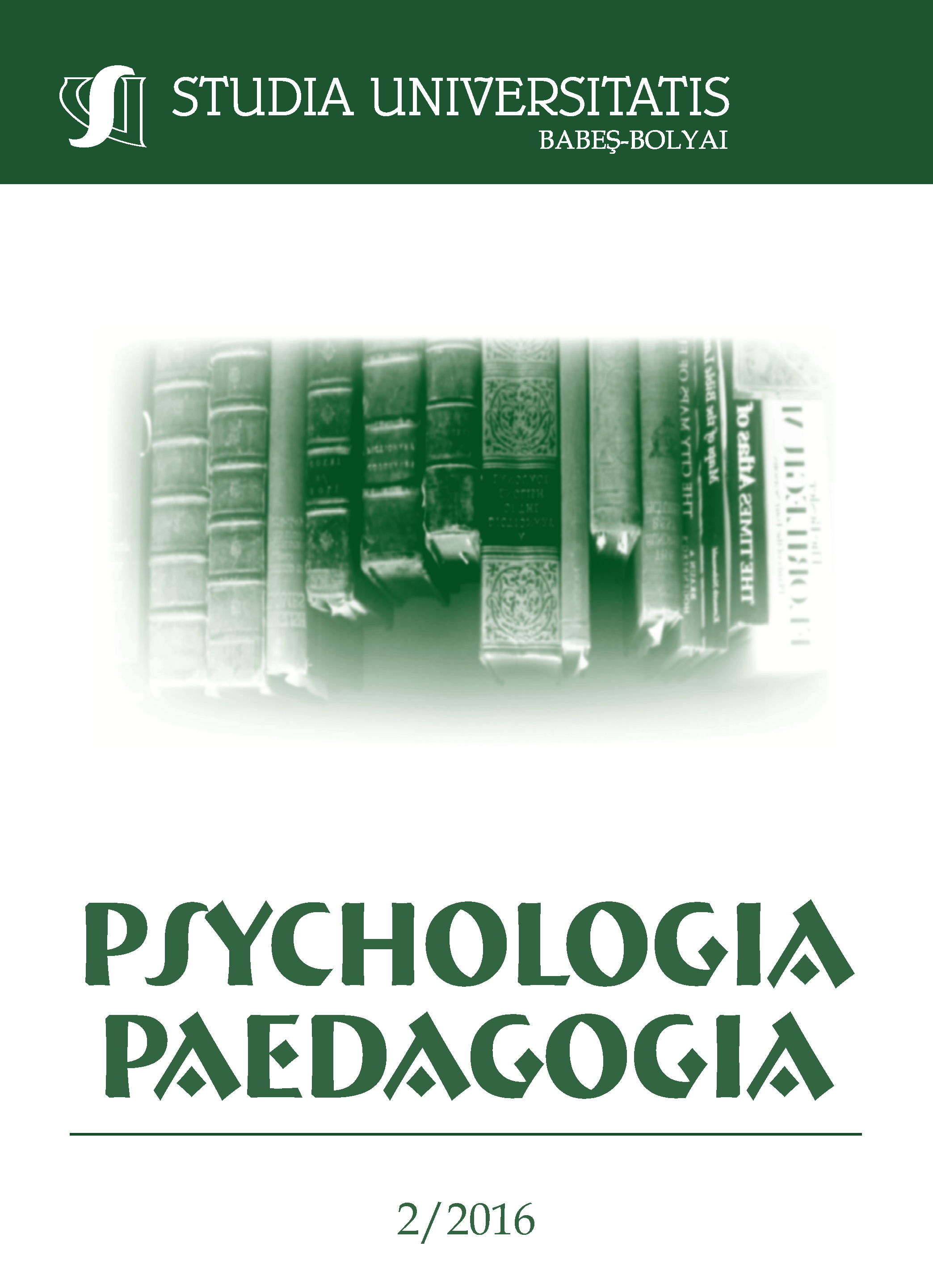WHAT MOTIVATES SECONDARY SCHOOL LEARNERS TO STUDY?
Keywords:
learner motivation at school, learning achievement, secondary school education, the fields of motivation at school (affective motives, cognitive motives, self-control motives).Abstract
School performance is determined not only by the learners’ cognitive abilities, but also by several other factors, including learner motivation, which provides the necessary energy for learning (Oroszlány, 1994). Experience has proved that learners equipped with very good learning abilities do not achieve their best possible results, while learners with weaker cognitive abilities but more diligence work hard and do better at school. The phenomenon can be explained with the degree and form of motivation for learning, which, if taken into account and developed, can become a tool for fostering achievement. The research tries to find out the characteristics of grammar and high school learners’ motivation, using written surveying methods (Kozéki & Entwistle, 1986), and examines whether there are any typical differences based on age group and gender. The questionnaire analyses learner characteristics along three dimensions: social-affective, cognitive-behavioral and moral-integrative. Based on the research findings, recommendations can be made on how to motivate learners effectively, which teachers of different age groups could use.
ZUSAMMENFASUNG. Die Schulleistung wird nicht nur durch die kognitiven Fähigkeiten der Schüler bestimmt, sondern wird auch von anderen Faktoren beeinflusst, unter anderem die Motivation der Schüler, die die nötige Energie für das Lernen garantiert (Oroszlány, 1994). Die Erfahrungen bestätigen oft, dass leistungsstarke Schüler oft weniger leisten als erwartet, beziehungsweise lernschwache Kinder durch harte Arbeit und Fleiß in der Schule sehr gute Ergenisse erreichen. Das Phänomen lässt sich durch das Maß der Schulmotivation und Schulform erklären, durch deren Stärkung und Berücksichtigung der Schulerfolg der Schüler beinflusst werden kann. Die Recherche (Forschung) unternimmt, daß man durch schulische Befragung (das Instrument Kozeki-Entwistle Motivations-Fragebogen) die Eigenheiten der Schulmotivation der Schüler aus den 5-12 Klassen aufdeckt, ob es typische Unterschiede nach Alter und Geschlecht gibt. Das Fragebogen ergrifft auf drei Dimensionen (affektiv-sozial, kognitiv-aktiv, moral-integrativ) die Eigenheiten der Motivation jedes einzelnen Schülers. Aufgrund der Forschungsergebnisse können wir für die Lehrkräfte, die sich mit verschiedenen Altersgruppen beschäftigen, Empfehlungen betreffs der effizienten Motivation der Schüler formulieren.
Schlüsselbegriffe: schulische Motivation, Lernerfolg, Oberschulbildung, die Bereiche der schulischen Motivation (affektive Szene, kognitive Szene, Selbstkontrolle -Szene)
References
Atkinson, R.L., Atkinson, R.C., Smith, E.E. & Bem, D.J. (1995). Pszichológia. Osiris Kiadó, Budapest. / Psychology
Balogh, L. (2006). Pedagógiai pszichológia az iskolai gyakorlatban. Urbis Könyvkiadó, Budapest. / Pedagogical psychology in the school practice
Báthory, Z. (2000). Tanulók, iskolák, különbségek. Okker Kiadó, Budapest. 43-55. / Learners, schools, differences.
Báthory, Z. & Falus, I. (1997). Pedagógiai Lexikon. Keraban Könyvkiadó, Budapest. / Lexicon of pedagogy.
Csibi, M. (2006). A tanulási motiváció pszichoszociális tényezői. Magyar Pedagógia. 106. évf. 4. sz. 313-327. / Psychological and social factors of motivation for learning.
Estefánné Varga M., Dávid M., Hatvani A., Héjja-Nagy K. & Taskó T. Pszichológia elméleti alapok. http://old.ektf.hu/hefoppalyazat/pszielmal/index.html (2014.07.23.)
Gömöry, K. (2006). Tehetséges tanulók intelligenciájának, tanulási stratégiáinak, motivációjának és szorongásának fejlődése „normál” illetve „válogatott osztályokban”. Magyar Pedagógia. 106. évf. 3. sz. 213-229. / Development of the intelligence, learning strategies, motivation and anxiety of skilful learners in ‘comprehensive’ or ‘selective classes’.
Kozéki, B. (1980). A motiválás és a motiváció összefüggéseinek pedagógiai-pszichológiai vizsgálata. Akadémiai Kiadó, Budapest. / Pedagogical and psychological analysis of the relation between motivating and motivation.
Kozéki, B. & Entwistle, N.J. (1986). Tanulási motivációk és orientációk vizsgálata magyar és skót iskoláskorúak körében. Pszichológia. 6. 271-292. / Analysis of learning motivations and orientations among Hungarian and Scottish learners of school age.
Kozéki, B. (1990). Az iskolai motiváció. In. Kürti Jarmila (szerk.): A neveléslélektani kutatások aktuális kérdései. Akadémiai Kiadó, Budapest. (95-123). / Motivation at school. In. Present day questions of the researches in educational psychology.
Liptákné Czakó, I. (2006). Edelény város 7. és 10. osztályos tanulóinak motivációs vizsgálatának eredménye. Kézirat / 7th and 10th year learners’ results in motivation research. Manuscript. www.edeleny.hu/varoshaza/az_iskolai_motivacio.doc (2014.07.22.)
Nagy, J. (2000). XXI. század és nevelés. Osiris Kiadó, Budapest. / the 21st century and education
N. Kollár, K. & Szabó, É. (2004). Pszichológia pedagógusoknak. Osiris Kiadó, Budapest. / Psychology for teachers
Oroszlány, P. (1994). Könyv a tanulásról. Pedagógus Szakma Megújítása Projekt, Alternatív Közgazdasági Gimnázium Alapítvány, Budapest. / Book on learning.
Peltekianné Cseke, O. (2008). Az iskolai motiváció vizsgálat. Debrecen TISZK, Debrecen. / Analysis of motivation at school.
Tóth, L. A tanulók motivációs sajátosságai és az iskolai teljesítmény. / Motivation characteristics of learners and their performance at school. http://mek.oszk.hu/04600/04669/html/balogh_pedpszich0024/balogh_pedpszich0024.htm (2014.07.21)
Vallerand, R.J. (2004). Intrinsic and Extrinsic Motivation in Sport. Encyclopedia of Applied Psycholgy. vol. 2. 427-435.
http://www.er.uqam.ca/nobel/r26710/LRCS/papers/128.pdf (2014.07.23.)
Ziellmann, Ch. (2002). Iskolai kudarcok – Rosszul tanuló, tehetséges gyerekek. Akkord Kiadó, h.n. / School failure – poor performance of skilful children.
Downloads
Published
How to Cite
Issue
Section
License
Copyright (c) 2016 Studia Universitatis Babeș-Bolyai Psychologia-Paedagogia

This work is licensed under a Creative Commons Attribution-NonCommercial-NoDerivatives 4.0 International License.





